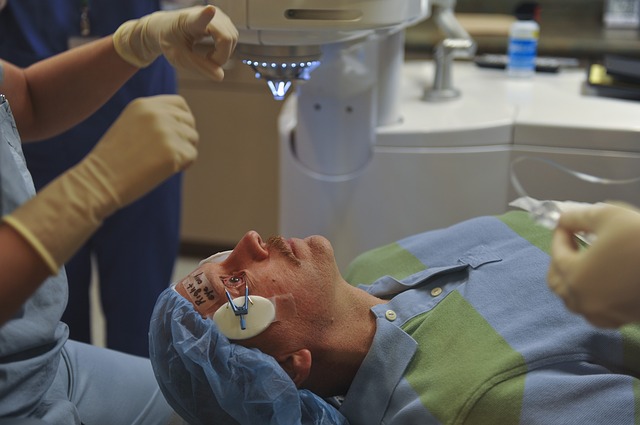Recovery after your Cataract Surgery
If you would like to have Cataract Surgery in NJ, because you live there, it might be a good idea to also consider who you would like to be your surgeon and what your recovery process will be like. Usually, you’ll be able to go home on the same day that you have had surgery. The hospital may have placed a plastic shield or pad on the eye that has had surgery and this can usually be taken off the day after the surgery was performed.
A few hours after the surgery you should have some feeling in your eye, however, it can take a few days until your vision is at its optimum. You may experience symptoms including double vision, grittiness, blurred vision, watering of the eye and even a bloodshot or red-eye. These side effects should get better over a few days; however, it may take 4 to 6 weeks to feel fully recovered. Usually, you should be able to undertake these activities a few hours after having surgery:
- Bathing or showering
- Use your computer
- Watch a short amount of TV.
The eye will take around six weeks to fully heal and if you do need new glasses, this is when you will need to order them for.
The success rate for cataract surgery is very high and you should see an improvement in your eyesight. This will allow you to take part in those day-to-day activities such as driving.
Applying your eye drops
Follow the below instructions on how to apply your eye drops:
- First of all, wash your hands and then tilt your head back.
- Look towards the ceiling and pull the lower lid of your eye down.
- Squeeze the eye drops bottle so that one-drop goes into the eye. Avoid letting the bottle touch the eye.
- Close your eye and use a tissue to wipe away any excess liquid.
Cleaning the eye
Follow the below instructions on how to clean your eye:
- Begin by boiling some water and leaving it to cool.
- Wash your hands and dip a gauze and or some cotton wool into the water.
- Wipe from the inside to the outside of your eye.
- Avoid pressing on the eye, wiping the inside of the eye or washing the eye with water.
For the first couple of weeks, it is worth cleaning your eyes twice a day as you may find that the healing process and the eye drops that you are using are causing some stickiness.
The first few weeks after cataract surgery
You need to make sure that you do the following:
- Relax for the first couple of days.
- Use any eye drops as prescribed.
- Take painkillers if required.
- Keep your eye shield or pad on at night for a minimum of a week. Remember to wear your eye shield when washing your hair.
- Don’t go swimming for around 4-6 weeks. This is to avoid infection.
- Shower and bath as normal.
- Don’t drive on the first day after having the surgery.
- Straight after the surgery, avoid bending over as this can put pressure on the eye.
The following you need to make sure you avoid:
- If possible avoid vomiting of sneezing after surgery.
- Shampoo or soap getting into your eye.
- Rubbing your eye.
- Flying until you have your doctor’s approval.
- Strenuous housework or exercise.
- Driving until your doctor says you can.
- Wearing eye make for a minimum of four weeks.
- Exposing your eye to irritants such as wind, dust or dirt the first couple of weeks after surgery.
It may be an idea to ask a friend or family member for help until your vision is back to normal, especially if the vision in your other eye is not good.
If you work, the type of job that you do will be a factor for when you can return back to work.
Outcomes
The surgery for cataracts is extremely safe and a commonly performed procedure. Studies have shown that if you have no other eye diseases prior to having surgery, you should achieve at least 20/40 distance vision. This will mean you can drive without glasses or contact lenses.
Seeking help
If during recovery you experience any of the below, you need to seek help from your cataract surgeon:
- Decreasing vision
- An increase in stickiness
- An increase in redness
- An increase in pain.

